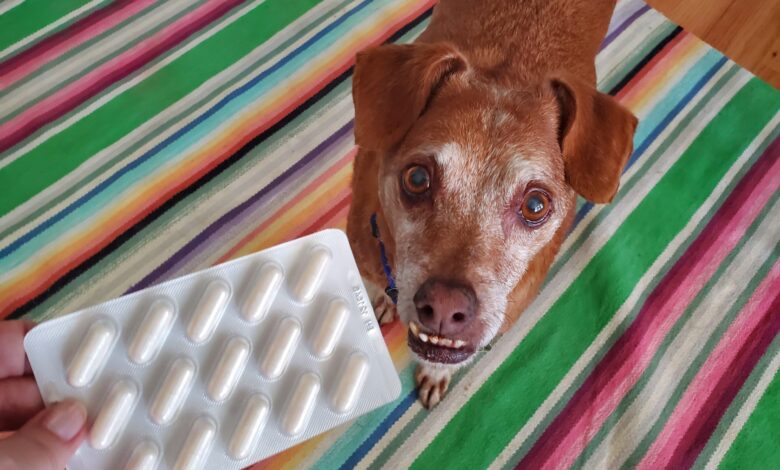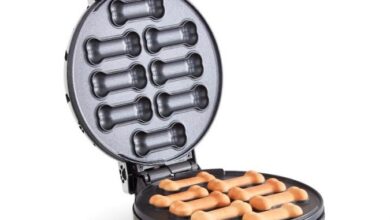Probiotics for dogs | Are Probiotics Good for Dogs?

Both good and bad bacteria can live inside a dog’s digestive tract. Probiotics are the good or friendly bacteria (and yeast) needed in the gut for healthy digestive and immune system function. Dr. Judy Morgan, a pet health public speaker and integrative veterinarian who offers online consultations, says probiotics fight bad bacteria and are the gatekeepers to keep out the bad guys. disease invasion. They keep the intestinal lining healthy so that the body can receive nutrients.
When your dog has vomiting and diarrhea, chances are good that these live microorganisms in their intestines are out of balance – with more bad bacteria than good. That’s why dog probiotics are often a good idea when it comes to digestive issues.
Dr Angie Krause, of Boulder Holistic Vet in Colorado, she recommends probiotics for all dogs because balanced bacteria in the gut is key to a healthy puppy.
Dr. Morgan says 80% of immune health in the body comes from the gut. She gives the dogs probiotics out of habit and rotates them.
Probiotics are available in the form of supplements available for purchase and there are natural probiotics for dogs in the form of probiotic-rich foods such as kefir and fermented vegetables.
Are probiotics good for dogs?
In most cases, probiotics are a great idea for dogs. The one exception, Dr. Morgan says, is for dogs with severe intestinal or liver infections, who may not benefit from probiotics until the infection is cleared. In this case, consult a veterinarian. She adds that occasionally dogs will experience diarrhea or loose stools when given probiotics. This may be because the gut bacteria transitions as it regains the proper balance. If it lasts more than 24 to 48 hours, stop using the probiotic.
For dogs with food sensitivities, read the inactive ingredients of the supplement’s label to make sure there are no unwanted ingredients. For example, avoid chicken meal supplements if your dog is sensitive to chicken.
When Probiotics Can Help Dogs
Besides promoting general health for dogs, there are specific situations when probiotics can help. Dr. Morgan says you can give your dog probiotics:
- any time there are gastrointestinal disturbances (such as vomiting and diarrhea)
- when a dog undergoes a surgical procedure or anesthesia
- during stressful times such as a trip to a care home, boarding at a facility and during travel
- when there is a change to your dog’s diet
- when your dog needs a course of antibiotics.
Dr. Morgan recommends giving your dog probiotics while on antibiotics and for at least two to three weeks after finishing the course of antibiotics. This is because antibiotics are killing all the bacteria in the gut – both good and bad – while they are being taken by mouth.
Krause recommends probiotics for almost any health condition, including digestive problems, cancer, autoimmune diseases, and allergies.
Other conditions Probiotics can help with treatment including dental disease and recurrent urinary tract infections by potentially balancing harmful bacteria in the mouth and vaginal areas. Arthritis may also be beneficial due to the anti-inflammatory effects of probiotics. Even anxious dogs can benefit from probiotics. Purina Pro Plan Veterinary Supplement Calming Care contains a probiotic strain (BL999) that may help reduce anxiety in anxious dogs.
Dr. Morgan says older dogs can also benefit from probiotic supplements as they tend to struggle with impaired immune health and more chronic inflammatory diseases where a healthy gut can help. benevolent. She says that for dogs who are anemic or eat feces or soil, use a soil-based probiotic or one that contains humic and fulvic acids.

How should I feed my dog probiotics?
It’s fairly safe to start giving your dog probiotics – unless there’s a specific health issue that worries you, of course.
There are many good probiotics on the market and many not so good ones. Since probiotics are live bacteria, handling them is very important. Supplements should not be exposed to high temperatures during storage or transportation as this will kill live bacteria. Many products need to be refrigerated after opening or even during transportation and storage. It is important to know how the product has been stored.
When buying probiotics, look for a manufacturer that has a reputation for making quality products. Dr. Morgan says the colony-forming units (CFUs) of probiotics should be listed on the label and billions of units. Also, look for a supplement that has more strains of bacteria than just one or two. She said that many varieties Lactobacillus and Bifidobacterium with Streptococcus thermophilus is ideal.
Dr. Krause says that probiotics are difficult to overuse. May cause stomach upset in very high doses, but is unlikely. To avoid giving your dog too much probiotics, Dr. Morgan recommends not giving your dog multiple products at once, but instead rotating them.

Natural probiotics for dogs
Dogs can also get probiotics naturally through food. Dr. Morgan says fermented foods like kefir, fermented goat’s milk and fermented vegetables like kimchi are all excellent sources of natural probiotics for dogs. She cautions that kefir from the grocery store that has been pasteurized and then fermented isn’t the best option. Making your own fermented veggies is a very cheap and better way to provide your dog with good gut bacteria.
Dr. Krause says that making your own fermented foods at home results in higher numbers and a wider variety of beneficial bacteria and yeasts. Although she cautions that while fermented foods have yielded better results in her practice for some dogs, she has encountered other dogs who are overly sensitive to fermented foods. yeast and work better with commercial probiotic supplements.
The appropriate dosage of probiotics for dogs depends on whether or not it is a dietary supplement. If it’s a dietary supplement, Dr. Morgan says just follow the directions on the label. But if it’s natural probiotics for dogs, follow the recipe instructions. If in doubt, start with a very small amount and monitor your pet.
Dr. Krause provides instructions on her website about how to make strawberry ferment pets using blueberries, honey and vegetable starters. Her feeding instructions say to feed them as a treat or with meals starting with one blueberry in the food twice daily for small dogs, two for medium dogs and three to four for large dogs. She says increase the amount gradually but stop and consult a veterinarian if diarrhea or vomiting occurs.
What about prebiotics for dogs?
If you have heard of probiotics before, you may have also heard the term “prebiotics”. Prebiotics are sources of fiber, such as inulin or larch arabinogalactan, that actually feed the probiotic bacteria. Dr. Morgan says that putting them together ensures the probiotic bacteria will grow, multiply and thrive.
While technically not necessary, probiotics are a very healthy and highly recommended addition to any dog’s diet. If you’re concerned about a particular condition, you can check with your vet first – but in general, probiotics for dogs are pretty safe.




